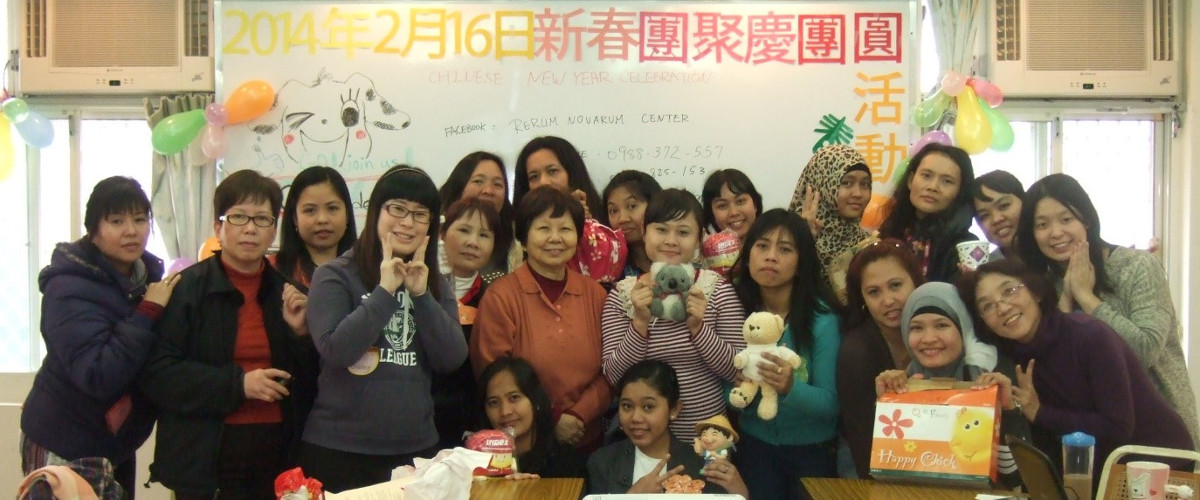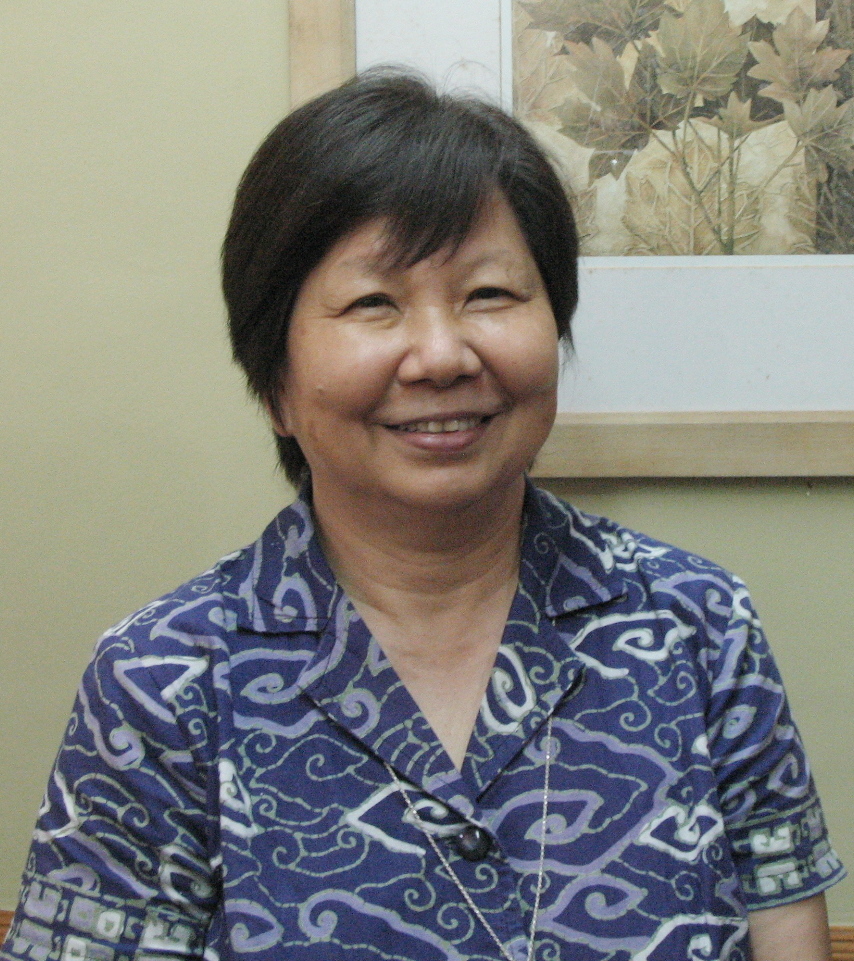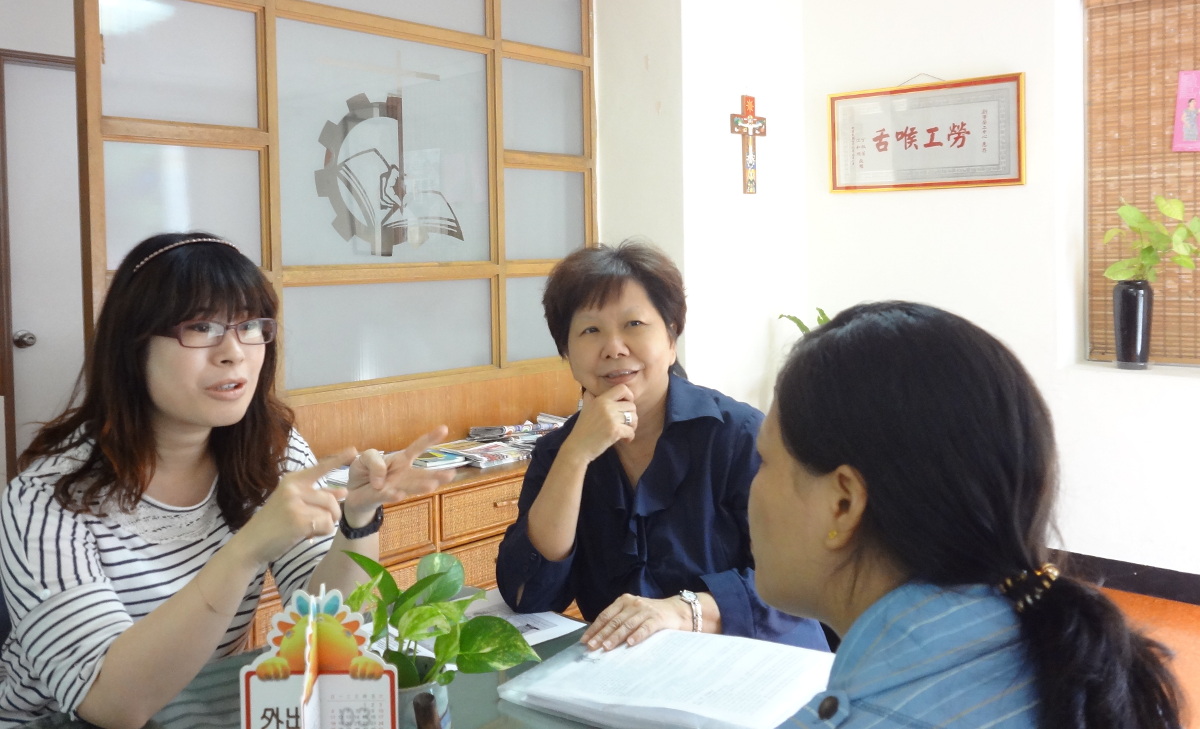
“It was not ideal,” she says. “They say the family should have a Catholic background, but none of us children had a Catholic background.” Sr Wei’s family, like many others in their village in Taiwan, practised a mix of Taoism and Buddhism. “But many parents said ‘ok’ so many children became Catholic,” she says.

At the time, her religious community emphasised evangelisation, and social work was not a priority. But after many years, the congregation shifted its focus to working with the marginalised. Coincidentally, at that time, the Jesuits in the Chinese Jesuit Province were looking for someone to replace Fr Jose Ellacuría SJ, who had retired as director of Rerum Novarum Center, the Jesuit social centre for migrant and local workers and indigenous peoples in Taiwan.
“Our congregation follows Ignatian Spirituality and the Jesuits knew about my background in social work,” she shares. “I was very happy because I wanted to work with poor people, and migrants and local workers.” Sr Wei became director of Rerum Novarum Center, and continued in that role for 22 years, until her retirement in May last year.
When she started, the centre worked with Filipino workers only, but Sr Wei quickly expanded their scope. Two years later, in 1997, Rerum Novarum Center opened its doors to indigenous peoples and in 2000 to Vietnamese, Indonesian and Thai workers. For a time, they also helped Southeast Asian women who were married to Taiwanese men integrate into Taiwanese society until 2004 when the government allocated NT$1 billion every year in funding for either local government or non-government organisations working for the rights and welfare of foreign spouses.

Sr Wei says she finds Jesus Christ alive in the stories and struggles of the people they serve.
“Even though our service leads us to encounter the difficulties and tragedies experienced by so many workers and their families – which is very challenging – I have also had the opportunity to meet many people of good heart, love, wisdom and talent,” she reflects.
“Many times have I learnt from the least of our brothers and sisters in whom I see the face of Jesus Christ and I feel deeply moved to have had the privilege of serving them. My life and spirituality have been nourished and enriched by them.”
Of all the things she has learnt from working with migrant workers for more than two decades, she highlights forgiveness, tolerance and optimism. One of the encounters she remembers is with a Filipino domestic helper who took care of the four children of a wealthy but very stingy family. “At meal times, she would get only the bones of fish with small pieces of ginger or chicken bones with very little meat. I asked her, how come you are still working for this family for nine years? She told me, ‘I pity the children because I feel like I am their mother and I need to take care of them.’ I thought how big her heart is.”
Sr Wei admits that there have been times when she felt powerless to help the migrant workers, especially when it came to their family problems. “Sometimes there are so many sad stories, but I think of Jesus facing the same situation suffering on the cross, and the resurrection gives me hope. When I listen to them, I feel I touch the face of Christ. It’s the most valuable feeling.”






